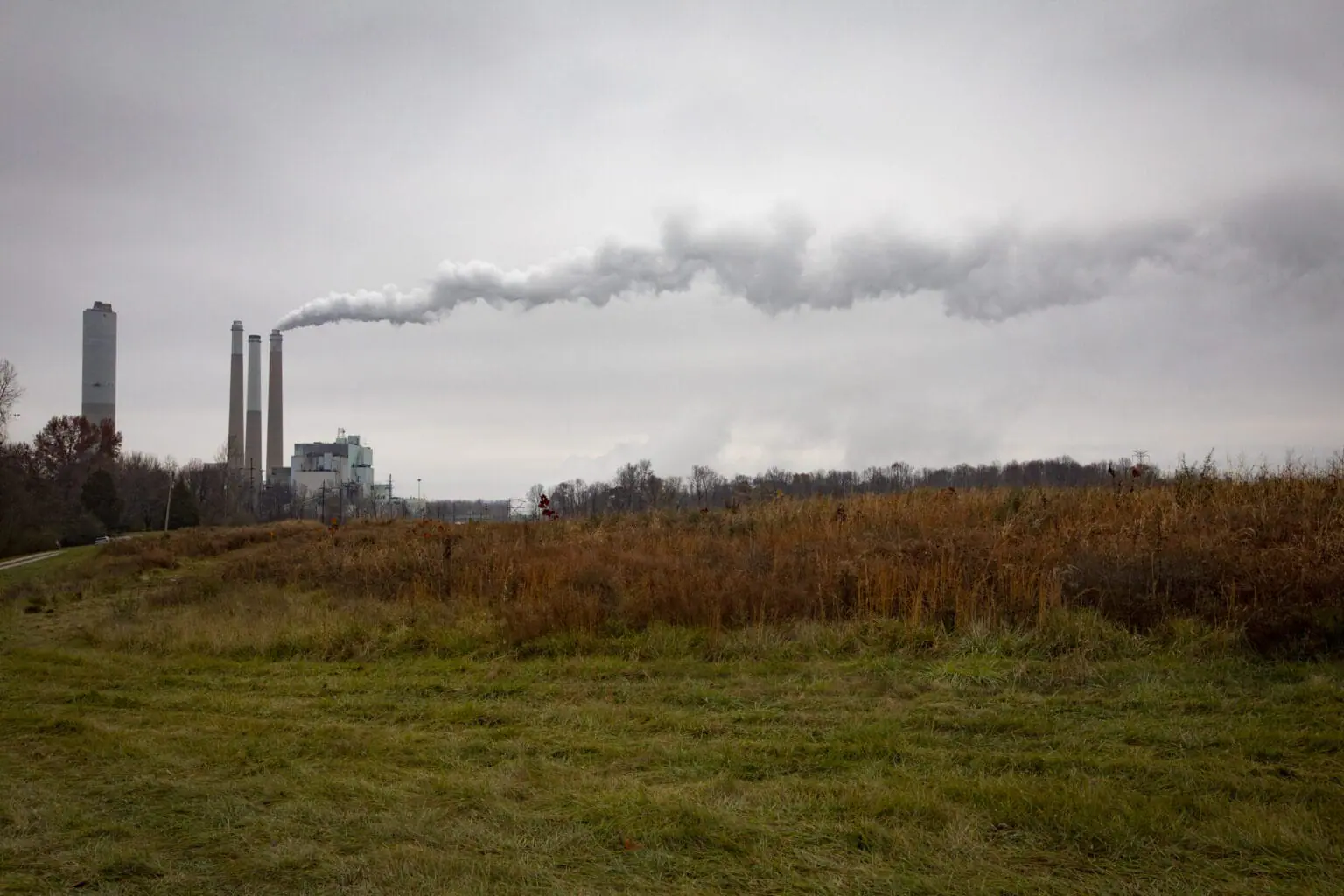Indiana AG says utility regulator can deny early coal plant retirements
(INDIANA CAPITAL CHRONICLE) — The powerful Indiana Utility Regulatory Commission can — and should — investigate early retirements of coal-burning power plants, Indiana Attorney General Todd Rokita wrote in a memorandum of legal guidance released Tuesday.
Rokita opined that the IURC is implicitly duty-bound to prevent such closures until a utility finds “dispatchable” replacement power. But the Statehouse, Rokita added, could add legal requirements.
Sen. Chris Garten, a Republican from Charlestown, requested Rokita’s help, and said lawmakers are considering changes.
Coal plants have historically had 50-year lifespans, according to a 2019 article published in Nature Communications. But they can last longer with fixes and upgrades.
U.S. coal plants are about 44 years old, in a capacity-weighted average, according to an analysis by the U.S. Energy Information Administration. Plants scheduled for retirement this year averaged 54 years of age: almost a decade older.
But coal plants decommissioned amid their expected decades-long lives have become a political flashpoint.
Proponents maintain that early retirements are critical to avoiding the worst impacts of climate change, while opponents arguing the closures jeopardize affordable energy supply. Both sides offer contrasting views on whether keeping the plants online benefits utility customers.
Going local
Although Garten requested the legal guidance, Reliable Energy — an energy advocacy group focusing on coal, natural gas and nuclear power — distributed the resulting opinion on his behalf.
The organization kickstarted the search for clarification after observing shortage warnings from electric grid operators, according to a statement made to the Capital Chronicle. The group contacted lawmakers about the IURC’s “exclusive focus” on construction of new energy facilities over closures and conversions.
Lawmakers thought the agency had the authority to oversee closures and conversions, but commissioners told Reliable Energy they didn’t, the group said.
Garten said he asked Rokita for clarity to support development efforts in his district. The River Ridge Development Authority is charged with replacing revenue lost when the massive former U.S. Army manufacturing plant shuttered in 1972, after the Vietnam War.
“River Ridge has done a fantastic job of attracting and recruiting all types of businesses, all types of industry,” Garten said. But, he estimated, the development has lost two projects in the last year or two because a utility — Duke Energy Indiana — “couldn’t electrify them.”
“This data center is now going up in River Ridge and Duke has proposed to the IURC a 16% rate increase,” Garten continued. “And so I’ve got constituents contacting me who are concerned. They’re watching this … being built, and the rates are going to go up. They want to know what they’re getting for the rate increase, and rightly so.”
Garten, who says he’s supportive of all energy sources, contacted Rokita about coal retirements specifically because “you don’t really see closures of other facilities right now.”
Indiana Code requires that electric generation policy be made with reliability, resiliency, affordability, stability and environmental sustainability in mind, Rokita observed in his memorandum. The IURC, he wrote, is tasked with regulating how energy is provided.
The law also gives the IURC investigatory powers when utilities want to retire, sell or transfer facilities; in cases of inadequate service; and when the agency believes “any matters relating to any public utility” should be probed, Rokita noted.
“These factors all lead to the reasonable conclusion that the IURC has not only the statutory authority, but an obligation, to investigate and evaluate proposed retirements of thermal generation facilities in the state,” he opined.
That includes denying early retirements “if they are determined to have a negative impact on grid reliability and resilience.”
Rokita said the IURC doesn’t need explicit authority, but that lawmakers could give it anyway. They could also go further, and clarify that such action is mandatory and not discretionary.
House Bill 1382, introduced last session, would’ve spelled that out. It also laid out conditions utilities would’ve had to meet in order to apply for permission to close any “fossil fuel fired” plant. The proposal never got a hearing and died.
The Hoosier Environmental Council said that bill would slow Indiana’s transition away from coal, a dirty fossil fuel, to greener energy sources.
“Besides adding an unnecessary burden to the Indiana Utility Regulatory Commission, this bill encourages our public utilities to keep their current energy generation sources running as long as possible, which are majority fossil fuels,” the council said on its website.
Garten said he’s working with the utility committee heads of both chambers, as well as legislative leadership, on a “holistic approach.”
“We’re having those conversations now, because I do not think this is a one-off,” Garten said.
He said a proposal reflecting Rokita’s guidance could be part of the solution.
“If you go all the way back 20 years ago, electric rates in Indiana were the fifth-lowest in the nation. We’re now 32nd and so, you know, to me, this is basic supply and demand,” he continued. “I think there’s a case to be made that our utilities could be perversely incentivized to constrain supply, because when supply goes down, demand is going to go up, which means prices go up.
Garten said the IURC has “done a fair job.”
But when asked if the state’s current system of reimbursing utilities for their investments is working, Garten said, “That’s part of the conversation we’re having right now. Everything is on the table.”
“This is a big enough issue (that) I don’t think you can just change one thing. I don’t think there’s a silver bullet solution,” he added.
